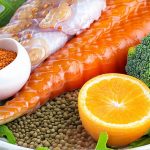Maintaining optimal urinary system health is often overlooked in discussions about overall wellness. We frequently focus on heart health, digestive regularity, or mental wellbeing, but the kidneys and bladder play critical roles in filtering waste, regulating fluids, and maintaining electrolyte balance – functions essential for every bodily process. Dietary choices have a significant impact on how efficiently these organs operate. Certain foods and beverages can place undue stress on the urinary system, potentially exacerbating existing conditions or even contributing to new ones. Understanding which snacks are gentler on your kidneys and bladder is therefore an important step toward proactive health management. It’s not about restrictive dieting; it’s about informed choices that support long-term wellbeing.
The goal isn’t necessarily to eliminate all “potentially problematic” foods, but rather to balance intake and prioritize options that minimize stress on the urinary system. For individuals with pre-existing conditions like kidney disease, interstitial cystitis, or frequent UTIs, dietary adjustments are even more crucial. However, everyone can benefit from being mindful of what they snack on, as preventative measures often prove far more effective than reactive treatments. This article will explore a range of snack options that generally pose minimal stress to the urinary system, focusing on nutrient-rich choices and highlighting factors to consider when making selections. It’s essential to remember that individual tolerance levels vary; listening to your body is paramount.
Gentle Snacking: Focusing on Kidney Support
The kidneys are remarkably resilient organs, but they work tirelessly. Supporting their function through dietary choices involves minimizing the burden placed upon them. This often means reducing intake of substances requiring extensive filtration or those known to potentially cause kidney stones. A key principle is to moderate protein intake, as excess protein necessitates increased kidney workload for processing nitrogenous waste products. While protein is essential, it’s about finding a healthy balance rather than excessive consumption.
Hydration is paramount when supporting kidney health. Water helps flush out toxins and prevents the concentration of substances that can lead to stone formation. Many snacks can contribute to hydration, like fruits with high water content. Conversely, dehydrating snacks should be limited. Focusing on foods low in sodium, phosphorus, and oxalate (for individuals prone to certain types of kidney stones) is also critical. This isn’t about eliminating entire food groups; it’s about making thoughtful substitutions and understanding potential triggers.
Choosing snacks that are naturally lower in these components can significantly ease the strain on your kidneys. Examples include pears, apples (in moderation due to oxalate content), blueberries, cranberries (unsweetened!), and grapes. These fruits offer vitamins, antioxidants, and fiber while being relatively gentle on renal function. When it comes to savory options, unsalted rice cakes with a thin spread of avocado or hummus can be satisfying without overloading the kidneys with sodium or protein. Remember that portion control is always important.
Bladder-Friendly Bites: Minimizing Irritation
The bladder is sensitive and easily irritated by certain foods and beverages. For individuals prone to frequent urination, urgency, or interstitial cystitis (a chronic bladder condition), identifying and avoiding trigger foods is vital. Common culprits include caffeine, alcohol, spicy foods, citrus fruits, tomatoes, chocolate, artificial sweeteners, and carbonated drinks. These substances can directly irritate the bladder lining, leading to discomfort and increased urinary frequency.
The challenge lies in identifying your specific triggers. What bothers one person may not affect another. Keeping a food diary can be extremely helpful in pinpointing which snacks exacerbate symptoms. When choosing snacks, prioritize bland, non-acidic options. Oatmeal with a touch of maple syrup, plain yogurt (avoiding artificial sweeteners), and bananas are generally well-tolerated by sensitive bladders. Cucumber slices offer hydration without irritation, while a small handful of unsalted nuts provides protein and healthy fats without being overly stimulating.
A key aspect of bladder health is to maintain adequate hydration – but with water as the primary fluid source. Avoid excessive fluids close to bedtime to minimize nighttime urination. Many people find that herbal teas (caffeine-free, of course!) can be soothing, but it’s important to test individual tolerance. The goal is to create a snacking routine that supports bladder comfort and minimizes disruptive symptoms.
Snack Strategies for Specific Concerns
If you have concerns about kidney stones, the type of stone dictates dietary modifications. Calcium oxalate stones are most common, requiring attention to oxalate-rich foods like spinach, rhubarb, nuts, chocolate, and tea. Reducing these foods (while still maintaining adequate calcium intake from other sources) can help prevent stone formation. Uric acid stones require limiting purine-rich foods such as red meat, organ meats, and certain seafoods. Cystine stones are less common but necessitate increased fluid intake to dilute cystine levels in the urine.
Regardless of the type of kidney stone you’re susceptible to, consistent hydration is the cornerstone of prevention. Aim for at least eight glasses of water daily. Snacks that contribute to this goal, such as watermelon or celery sticks, are excellent choices. Avoiding excessive sodium intake also plays a role, as high sodium levels can increase calcium excretion in the urine, potentially promoting oxalate stone formation. A balanced diet and personalized guidance from a healthcare professional are crucial for managing kidney stone risk effectively.
For individuals with interstitial cystitis (IC), identifying bladder triggers is paramount. This often involves an elimination diet – systematically removing potential irritants to determine which ones worsen symptoms. Common triggers include acidic foods, caffeine, alcohol, artificial sweeteners, spicy foods, and carbonated beverages. Snacking options should therefore prioritize bland, non-acidic choices like pears, blueberries, rice pudding (unsweetened), and herbal teas (caffeine-free). Small, frequent meals are often better tolerated than large ones, as they reduce pressure on the bladder.
Building a Urinary System-Friendly Snack List
Here’s a starting point for building your own personalized snack list:
- Fruits: Pears, apples (in moderation), blueberries, cranberries (unsweetened), grapes, watermelon
- Vegetables: Cucumber slices, celery sticks, carrots (in moderation)
- Dairy/Alternatives: Plain yogurt (avoiding artificial sweeteners), unsweetened almond milk, small amounts of low-fat cheese
- Grains: Unsalted rice cakes, oatmeal (plain or with maple syrup), whole-wheat crackers (unsalted)
- Nuts & Seeds: Small handfuls of unsalted nuts (almonds, walnuts), seeds (chia, flax)
- Other: Avocado slices, hummus with vegetable sticks, hard-boiled eggs (in moderation for kidney health)
It’s important to read food labels carefully, paying attention to sodium, sugar, and artificial ingredient content. Opt for whole, unprocessed foods whenever possible.
Staying Consistent & Seeking Guidance
Consistency is key when adopting a urinary system-friendly snacking routine. Make gradual changes rather than attempting drastic overhauls. Start by swapping out one or two problematic snacks each week with healthier alternatives. Pay attention to how your body responds and adjust accordingly. Keep a food diary to track what you eat and any associated symptoms, helping you identify personal triggers and refine your snack choices.
Ultimately, the best snacking strategy is personalized. If you have pre-existing kidney or bladder conditions, consult with a healthcare professional or registered dietitian for tailored guidance. They can provide specific recommendations based on your individual needs and health status. This article provides general information and should not be considered medical advice. Prioritizing mindful eating, hydration, and informed choices will contribute significantly to the long-term health of your urinary system.





















